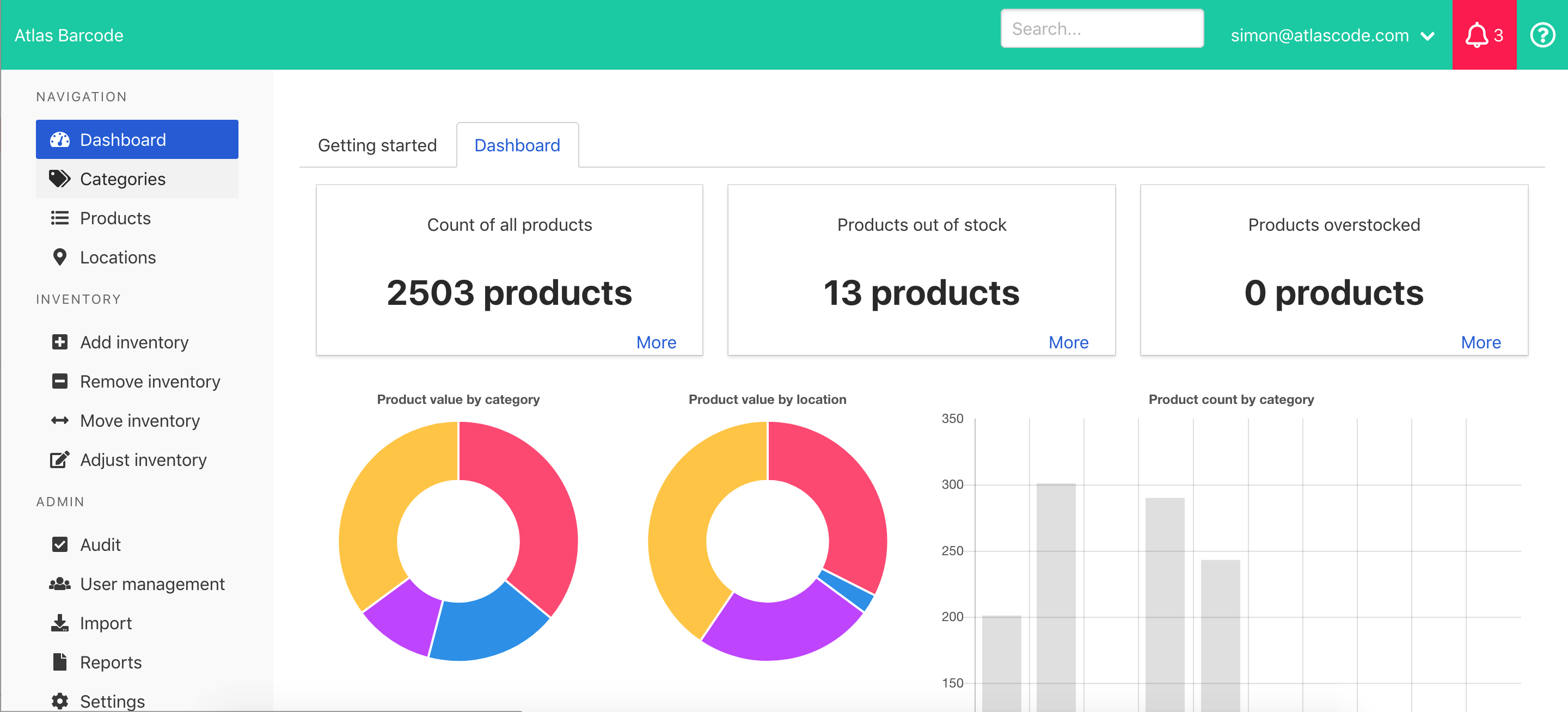Inventory Management Software: A Game Changer for Modern Businesses
In today’s fast-paced business environment, effective inventory management is critical for success. Businesses of all sizes face the challenge of keeping track of stock levels, managing orders, and ensuring products are available when needed. The advent of inventory management software has revolutionized how businesses handle their inventory, making operations more efficient, cost-effective, and streamlined. This article explores the benefits, features, and importance of inventory management software in modern business operations.
What is Inventory Management Software?
Inventory management software is a tool designed to automate and optimize the processes involved in managing inventory. These systems are equipped with features that help businesses track stock levels, manage orders, and streamline procurement processes. With the help of such software, companies can gain real-time visibility into their inventory, reduce human error, and make data-driven decisions that improve operational efficiency.
Traditionally, businesses relied on manual inventory tracking methods, such as spreadsheets or paper-based records. However, these methods are prone to inaccuracies and inefficiencies. Inventory management software solves this problem by offering a more automated, accurate, and scalable approach to inventory control.
The Importance of Inventory Management Software
Effective inventory management is crucial for businesses to meet customer demands without overstocking or running out of stock. Poor inventory management can lead to stockouts, which result in lost sales and frustrated customers, or overstocking, which ties up capital and incurs storage costs. Inventory management software offers solutions to these problems by providing businesses with better control and visibility over their stock.
For example, businesses can use inventory management software to predict demand more accurately, reducing the risk of stockouts. By tracking inventory in real-time, companies can also prevent overstocking and optimize their storage space. In essence, inventory management software helps businesses maintain an ideal balance between supply and demand, ultimately contributing to better customer satisfaction and increased profitability.
Key Features of Inventory Management Software
Inventory management software comes with a wide range of features that make it a valuable tool for businesses. Some of the most important features include:
Real-Time Tracking: One of the main benefits of inventory management software is its ability to provide real-time data on stock levels. This allows businesses to monitor inventory continuously and make decisions based on up-to-date information.
Barcode Scanning: Most modern inventory systems include barcode scanning capabilities, which reduce human error and speed up processes like stocktaking and order fulfillment. By scanning barcodes, businesses can easily update inventory levels and track products more efficiently.
Order Management: Inventory management software allows businesses to manage and track orders seamlessly. From receiving orders to dispatching goods, these systems help businesses streamline the entire order process, reducing errors and delays.
Reporting and Analytics: Advanced inventory management software offers reporting and analytics features that provide insights into inventory trends, sales performance, and stock turnover rates. These reports help businesses make data-driven decisions and identify areas for improvement.
Automated Replenishment: Many systems feature automated replenishment functions that alert businesses when it’s time to reorder stock based on predefined thresholds. This ensures that inventory levels remain optimal and prevents the risk of stockouts.
Integration with Other Systems: Inventory management software can often integrate with other business systems such as accounting, sales, and procurement software. This enables businesses to streamline their operations and synchronize data across different departments.
Benefits of Using Inventory Management Software
the adoption of inventory management software offers numerous benefits to businesses, especially those dealing with large inventories and complex supply chains. Some of the key advantages include:
Increased Efficiency: Automation is one of the primary benefits of inventory management software. By automating tasks like stock tracking, order processing, and inventory updates, businesses can save time and reduce manual effort. This allows employees to focus on more strategic activities and improves overall efficiency.
Cost Savings: Inventory management software helps businesses reduce costs in several ways. For example, by preventing overstocking, businesses can reduce storage costs and avoid tying up capital in excess inventory. Moreover, automated reordering ensures that businesses purchase only what they need, reducing waste and the risk of stockouts.
Better Decision-Making: The real-time data provided by inventory management software allows businesses to make informed decisions. With detailed insights into sales trends, stock levels, and product performance, companies can forecast demand more accurately and optimize their inventory management strategies.
Improved Customer Satisfaction: Effective inventory management leads to better order fulfillment, faster delivery times, and fewer stockouts. These improvements enhance the customer experience and increase customer loyalty. Businesses that can consistently meet customer demand and deliver on time are more likely to retain customers and attract new ones.
Scalability: As businesses grow, so does the complexity of their inventory management needs. Inventory management software is designed to scale with business growth, accommodating increased stock levels, more products, and larger order volumes. This scalability ensures that the software remains useful as businesses expand.
Choosing the Right Inventory Management Software
Selecting the right inventory management software is essential for businesses to reap the full benefits of automation. When choosing software, businesses should consider the following factors:
Ease of Use: The software should be user-friendly and easy to navigate, with intuitive interfaces and clear instructions for employees to follow. Complicated systems can lead to mistakes and slow adoption.
Customization: Every business has unique needs, so it’s important to select software that can be customized to fit specific requirements. Custom features or workflows can help businesses manage their inventory in a way that aligns with their operations.
Cost: The price of inventory management software can vary widely depending on features and capabilities. Businesses should evaluate their budget and choose a solution that offers the best value for their needs.
Customer Support: Good customer support is essential when implementing and using new software. Businesses should choose a vendor that provides responsive and helpful customer service to assist with any issues or questions.
Conclusion
inventory management software is a powerful tool that can transform the way businesses handle their inventory. By automating processes, providing real-time data, and offering advanced features, inventory management software helps businesses improve efficiency, reduce costs, and enhance customer satisfaction. As businesses continue to grow and evolve, the need for effective inventory management will only increase. Therefore, investing in the right inventory management software is a strategic decision that can drive long-term success.







Post Comment